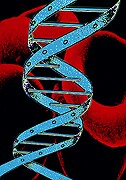
THURSDAY, May 27 (HealthDay News) — Small sample sizes may undercut the reliability of recent genome studies that seemingly uncovered genetic underpinnings for cancer risk, a Greek-American analysis cautions.
The observation is the result of a review of 45 studies that had harnessed technological innovations in so-called “whole genome sequencing” to attempt to identify specific genetic risk factors and link them to the risk for developing a range of cancers.
All the analyzed studies, published between 2007 and 2010, were listed in the National Human Genome Research Institute catalog.
The research team, led by Dr. John P.A. Ioannidis of the department of hygiene and epidemiology at the University of Ioannina School of Medicine in Athens, said their review of studies identified 92 genetic associations linked to the risk for developing various cancers.
More than half the highlighted genetic links concerned prostate, colorectal and/or breast cancer, they noted.
But the authors concluded that the explanatory power to predict individual cancer risk is “limited,” they noted in a news release.
Ioannidis’ team specifically noted that although the reviewed evidence for genetic roots to cancer risk was generally of statistical significance, the observed connections were relatively weak. They further noted that “almost all of them would also have small or very small effects.”
Their findings are published in the May 26 online issue of The Journal of the National Cancer Institute.
More information
For more on genetics and cancer risk, visit the American Cancer Society.

